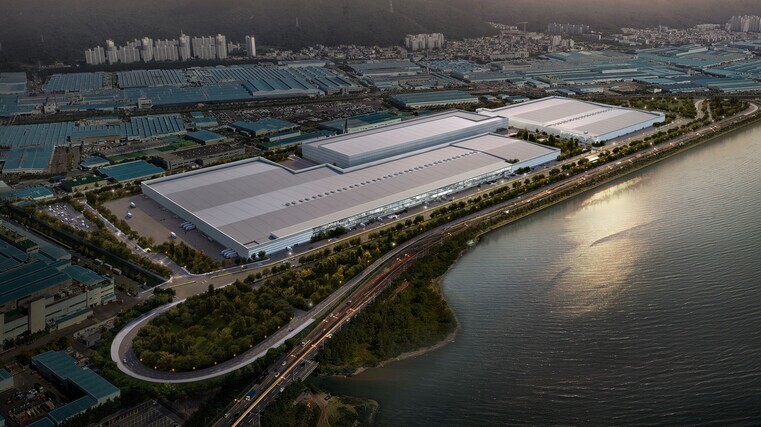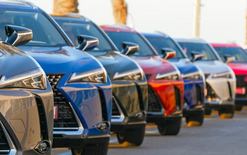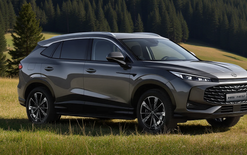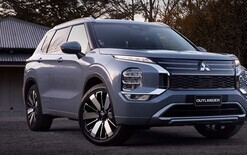$2.21b factory for EVs

Hyundai Motor Group is constructing a new electric vehicle (EV) plant at its complex in Ulsan, the heart of South Korea’s automotive industry.
The company says it lays the foundation for future growth in the era of electrification while building on a dream first established by its founding chairman more than half a century ago.
Euisun Chung, group executive chairman, says: “Just as the dream of building the best car in the past made Ulsan an automotive city today, Hyundai will work together to make Ulsan an innovative mobility city that leads the way in the era of electrification starting with this dedicated EV plant.”
The EV factory in Ulsan builds on the vision of Hyundai’s first chairman Ju-yung Chung, who believed the car industry would become the cornerstone of South Korea’s economy and underpin its industrial development.
More than half a century ago, he chose Ulsan as the location to help to create a better outlook and realise the country’s mobility dreams. Now, the new EV plant will build on that legacy.
Beginning as an assembly plant in 1968, the Ulsan plant grew by leaps and bounds in a short period of time.
The mass production of Hyundai Motor’s first unique model – the Pony – in 1975 demonstrated the determination of its employees to realise South Korea’s first independently developed automobile. They achieved this despite a harsh domestic environment.
The Pony’s mass production was also a catalyst for technological independence, leading to the localisation of automotive parts production when the company had been previously reliant on overseas markets. It also led to the development of domestic vehicle production technology.
More than half a century later, Hyundai’s Ulsan facility is the largest single plant in the world and the centre of the company’s finished vehicle production.
The EV-dedicated facility will be Hyundai Motor’s first new plant in South Korea in 29 years following the opening of its factory in Asan in 1996.
It will form part of a 548,000-square-metre site with a capacity to produce 200,000 EVs per year with the equivalent of about NZ$2.21 billion being invested in the project. Construction is slated for completion in 2025 with mass production starting in the first quarter of 2026. A fully electric SUV from Hyundai’s luxury brand Genesis will be the first model to be made there.
The plant in Ulsan will be located on the site of Hyundai Motor’s former proving ground, a place where the company looked to the future and shaped innovation.
It was first used in the 1980s when it was seeking to expand into overseas markets. The company developed global models there, such as the Sonata, Accent and Elantra, which was badged the Avante for the domestic market.
It was also at this site that advanced research for EVs and autonomous driving began early on.
In 1991, Hyundai Motor’s first electric prototype, the Sonata (Y2) EV, was developed. The following year, its first driverless vehicle successfully completed its initial test drive on the Belgian Road test track.
The engineering test centre was where Hyundai’s models were born, and where the seeds for future research were sown and bore fruit with EVs such as the IONIQ 5 and IONIQ 6.
Innovative platform
Hyundai Motor plans to apply a platform that was developed by the Hyundai Motor Group Innovation Centre in Singapore (HMGICS) at its dedicated EV plant in Ulsan to futureproof the facility.
HMGICS’ manufacturing innovation platform includes demand-driven, AI-based intelligent control systems, eco-friendly construction methods to achieve carbon neutrality and 100 per cent renewable-energy use.
The company will build a smart logistics system, including automated parts logistics, at the new EV factory. It will also introduce a flexible production system to diversify models, respond to global-market changes, and automate assembly facilities to improve productivity and quality.
Natural light will be maximised inside. There will be a group lounge and the plant’s central park will bring “the nature of Ulsan” into the facility. In addition, solar-power panels and upcycled concrete panels will be applied to the facade.
“The Ulsan plant is the world’s largest single plant, established in 1968 with the grand dream of providing the world’s best automobiles,” says Sung-won Jee, head of Hyundai’s brand marketing division.
“Through this new EV-dedicated plant, we will strive to advance our mobility solutions for everyone by leading the paradigm of future automobile production.”





